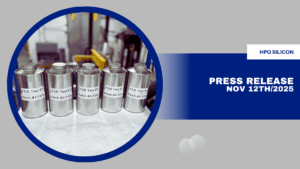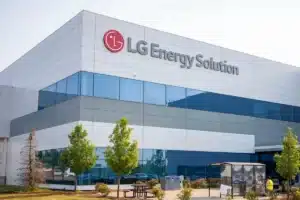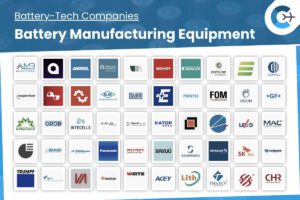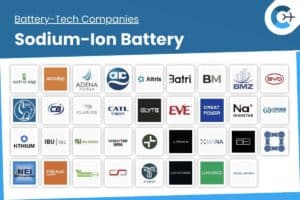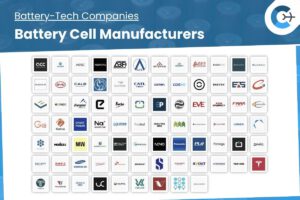Located in Münster, Germany, the Fraunhofer Research Institution for Battery Cell Production (FFB) is transforming battery manufacturing in Europe by scaling innovative research into industrial processes, promoting sustainability, and enhancing production efficiency. Supported by partnerships with leading universities, research institutions, and industry players, Fraunhofer FFB aims to serve as a central component of Europe’s battery production ecosystem.
Fraunhofer FFB acts as a crucial link between experimental breakthroughs in laboratory settings and the complexities of full-scale industrial battery manufacturing. “Our mission is to evaluate the scalability of promising innovations and translate them into commercially viable solutions,” explains Dr. Kristina Borzutzki, Group Leader for Process Engineering at Fraunhofer FFB. This includes developing optimized processes for various battery chemistries, such as lithium-ion and emerging sodium-ion technologies.
The institution actively collaborates with academic and industrial stakeholders to create a seamless pipeline from research to commercialization. Its facilities replicate industrial-scale conditions, enabling researchers to address potential issues early in the production process and reduce the time required to bring advancements to market.
The FFB PreFab Facility Infrastructure
Inaugurated in Münster, the “FFB PreFab” is an open battery cell manufacturing facility designed for collaborative research and pilot-scale production. Spanning over 6,450 square meters, the facility allows partners to experiment with innovative production methods while maintaining scalability for industrial application.
We designed the PreFab facility to foster collaboration across the battery value chain. From pilot production to hands-on training programs, it’s a multidisciplinary hub ready to address the most pressing challenges in battery manufacturing. – Dr. Kristina Borzutzki.
The facility also includes rentable innovation modules, giving partners the flexibility to trial their technologies within Fraunhofer’s advanced infrastructure.
The new “FFB Fab” will expand on these capabilities, with plans to support the production of a wide range of cell formats and materials at different scales. This scalable infrastructure positions Fraunhofer FFB as a versatile partner for both established manufacturers and new entrants in the battery industry.
Addressing Industry Needs with Workforce Training and Technology Transfer
Fraunhofer FFB is tackling one of the urgent challenges in the battery industry: the shortage of skilled professionals. Through its training programs, the institution provides hands-on experience in state-of-the-art production methods. This initiative not only equips the current workforce with the necessary skills but also prepares a new generation of experts to advance battery technologies.
Technology transfer is another critical focus. By bridging the gap between academic research and industrial application, Fraunhofer FFB accelerates the adoption of innovative processes while aiming to minimize production costs and promote sustainability.
Working on Sustainability in Battery Manufacturing
Sustainability is a cornerstone of Fraunhofer FFB’s mission. The institution emphasizes reducing resource waste and energy consumption during production, and prioritizes the development of sustainable battery chemistries such as lithium iron phosphate (LFP) and sodium-ion systems.
We are working towards more sustainable production methods, aiming to reduce toxic compounds and energy demands. This isn’t just about making better batteries, but also about making them in a more environmentally friendly way. – Dr. Kristina Borzutzki
Recycling initiatives and green energy solutions further reflect Fraunhofer FFB’s commitment to reducing the environmental impact of battery manufacturing.
Research Focus on Electrode Production and Emerging Chemistries
The Fraunhofer FFB is advancing electrode production, one of the most resource-intensive phases in battery production. Dr. Borzutzki leads a newly formed junior research group dedicated to optimizing electrode production methodologies.
Our goal is to reduce energy consumption and eliminate environmentally harmful chemicals while improving the overall efficiency of the manufacturing process. – Dr. Kristina Borzutzki
Fraunhofer is also exploring alternative battery chemistries, such as sodium-ion technologies, which could serve as cost-effective and resource-abundant alternatives to lithium-ion systems. These efforts ensure the institution remains adaptable to the evolving demands and innovations in the global battery market.
Collaborations and Partnerships Across the Battery Value Chain
In the next decade, Fraunhofer FFB anticipates several significant advancements in battery technology. These include resource-saving production techniques, high-performance chemistries, and progress in solid-state battery development. By maintaining a flexible and open approach to evaluating emerging technologies, the institution positions itself as a significant contributor to the future of global battery innovation.
Fraunhofer FFB develops a collaborative ecosystem comprising:
- OEMs for electric vehicles
- Material and sensor manufacturers
- Software companies
- Research institutions
These partnerships bring diverse expertise to the table and accelerate innovation cycles across industries, including e-mobility, stationary energy storage, and more.
Through its multidisciplinary expertise, advanced facilities, and commitment to sustainability, Fraunhofer FFB is enabling Europe to take a leading role in the rapidly growing battery market. For more details, please visit the Fraunhofer-Gesellschaft / Research Institution for Battery Cell Production (FFB) website.
In collaboration with Thermo Fisher Scientific, I recently had the opportunity to interview Dr. Kristina Borzutzki, Group Leader of Process Engineering at Fraunhofer FFB, who shared insights into their purpose, technology, and vision for the future.
For more details, please visit the original interview published by Thermo Fisher Scientific: Interview article • Downloadable PDF version



